• Reducing water usage
• Switching to eco-friendly cleaning products
• Using energy-efficient appliances
• Growing your own produce
• Composting organic waste
• Planting a tree
• Taking a walk in your downtown area and browsing local shops
• Using eco-friendly pet toys
• Upcycling jars
• Reduce, reuse, recycle – but making it art
1) Reduce Water Usage
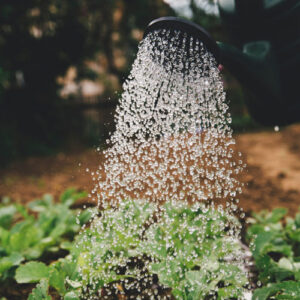
We’ve heard it time and time again to reduce our water usage, but this is truly essential. “Energy is needed to filter, heat, and pump water to your home, so reducing your water use also reduces your carbon footprint.” Along with the benefit of your carbon footprint reduced, you can simultaneously save energy and therefore money. There are your monetary and moral incentives!
- Action: Fix leaky faucets, turn off the tap while brushing your teeth or shaving, and take shorter showers.
- Whitewater Twist: Practice responsible camping etiquette by bringing your own water or using water filters to drink the river in place of buying plastic water bottles. In order to keep our rivers clean and fresh, please clean, drain and dry your paddle sports items before moving to another body of water.
2) Switch to Eco-Friendly Cleaning Products
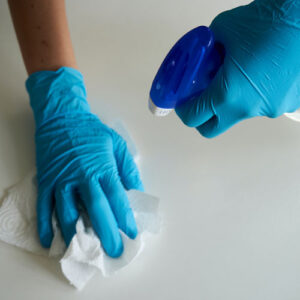
Purchasing environmentally friendly cleaning products is not just “in” but a necessity for our water systems. These products lack harmful chemicals and are less likely to be irritants to animals. Their packaging is also environmentally friendly as well, so disposing of them correctly will not harm the environment.
- Action: Use non-toxic, biodegradable, and sustainable cleaning products (make sure your soaps are phosphorus-free)
- Whitewater Twist: Use eco-friendly & zero-waste products (specifically soaps) during whitewater paddling trips to minimize the impact on the environment.
3) Use Energy-Efficient Appliances
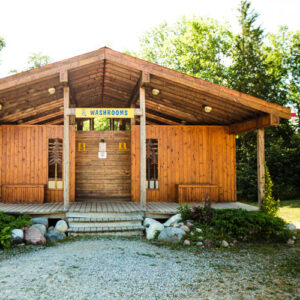
Utilizing energy-efficient appliances will aid in reducing greenhouse emissions which are GHGs – “gasses in the earth’s atmosphere that trap heat”. When you are upgrading your everyday appliances, purchase ones that are energy-efficient. This will also reduce water usage and an overall dependency on oils and fossil fuels.
- Action: Research and upgrade to energy-efficient appliances, turn off electronics when not in use, and unplug chargers when not in use.
- Whitewater Twist: Bring solar-powered chargers for your electronics during whitewater paddling trips to reduce reliance on generators or other energy sources. At OWL Rafting we use solar power to heat our water for showers and sinks.
4) Grow Your Own Produce
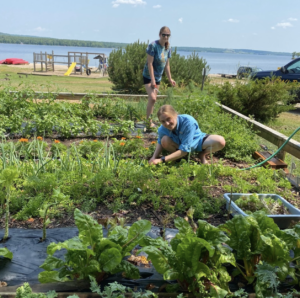
This may be intimidating for some and exciting for others, but whether you are a beginner or an expert gardener, learning how to grow your own fresh produce is an eco-friendly activity you must try. Not only is it a great skill to learn, but growing fresh vegetables also has health benefits.
- Action: Grow your own vegetables and herbs in your backyard or balcony.
- Whitewater Twist: Pack your home-grown foods into reusable containers for a long day on the river and share the love with friends. This is a great way to keep your body fuelled for adventures. That’s why at OWL Rafting we have a vegetable and herb garden to bring you the freshest of ingredients for your meals.
5) Compost Organic Waste
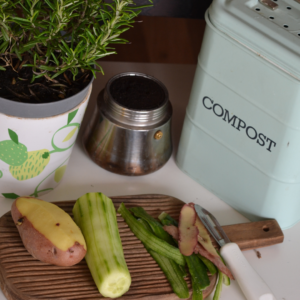
Did you know that when organic waste is not composted it ends up in land mills that then generate methane – a potent greenhouse gas? It also reduces the amount of waste being dumped in landfills, ultimately reducing the space required for our garbage. What we do with our organic waste does have a direct impact on the environment. Let’s do our part in composting our leftovers.
- Action: If your area does not collect organic waste, start a compost bin for your food scraps, yard waste, and paper (this doesn’t have to be expensive and can be accomplished with some very basic building supplies and a bit of Googling). This is the cheapest and most environmentally friendly way to get fertilizer for your gardens.
- Whitewater Twist: Remember that organic waste does not compost in water, dig a hole away from the high water line to bury your organic waste when camping. At OWL Rafting, we’ve taken composting one step further with our onsite pigs that eat our leftovers, in addition to our composting system for raw fruit and vegetables, this has reduced our landfill garbage by 40%. Our washrooms are naturally composting called ‘cleavus multrum’ which is a Swedish design, using red wriggler worms to compost the organic waste.
6) Plant a tree
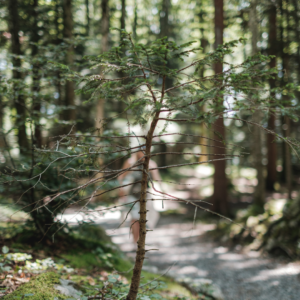
This one is pretty simple: Trees are awesome, and they clean the air we breathe! Never forget that (even when you’re raking leaves and pine needles).
- Action: Plant a tree, name it, then repeat!
- Whitewater Twist: Participate in river restoration projects and support organizations that work to protect and restore river ecosystems. Big shoutout to the Ottawa River’s best river clean-up and restoration crew – The Ottawa River Keepers!
7) Take a walk in your downtown area and browse local shops
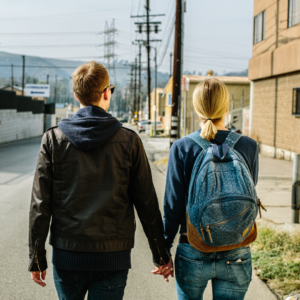
Purchase sustainably made products and you simply won’t regret buying “green”, and making the effort to preserve our planet.
- Action: Buy products that are sustainably made and support local businesses.
- Whitewater Twist: Purchase your additional necessities and equipment from local companies that prioritize sustainability when coming to our site! Please note that at our merch shop, you’ll also be able to find and purchase sustainable products, just in case you forgot something at home.
8) Pets can enjoy eco-friendly toys

Taking care of pets can be a fun and eco-friendly activity. Your pets don’t mind the switch to “green” toys (some of them actually prefer the cardboard toilet paper roll) and you don’t have to worry about the material of these items harming them.
- Action: Use recycled materials for pet toys, or go to your local thrift store to find ‘new to your pet’ toys. Choose sustainable pet food, and use natural cleaning alternatives.
- Whitewater Twist: Avoid plastic pet toys that can end up polluting our freshwater, and opt for toys made from natural materials such as cotton. Additionally, bring reusable food containers for your pets’ meals to reduce waste to “leave no trace”.
9) Upcycle your jars in different ways
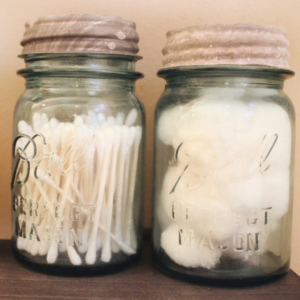
There are so many different uses for jars that they should almost never be thrown out! Repurpose your jars and use them alternatively for pickling, storage, candles, and so much more.
- Action: Line up all the jars in your home on a flat surface and intentionally give them an alternative purpose.
- Whitewater Twist: When going on a whitewater paddling trip, bring upcycled jars to use as airtight containers for your snacks or meals. At the end of the trip, repurpose the jars again for storing your leftovers!
10) Reduce, Reuse, Recycle, but make it art
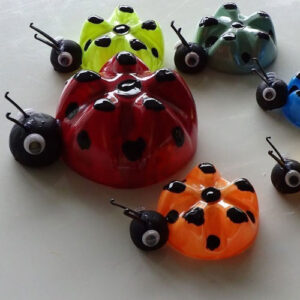
If you’re hosting friends and family and want an eco-friendly activity, pull out all the recycled material from the Blue Bin and get your loved ones to make abstract art, or challenge them to create art that will fit the aesthetic of your home.
- Action: Create abstract and unique pieces by using repurposed materials that would otherwise be discarded – plastic containers, glass jars, and cardboard boxes, which are easily great craft materials.
- Whitewater Twist: You can collect river rocks (while keeping them onsite) and create a mosaic pattern. Use your creativity and imagination to make something beautiful while keeping our river environment clean and healthy.
Sources
- https://www.wildlifetrusts.org/actions/how-conserve-water
- https://www.pacesetterhomestexas.com/the-benefits-of-using-natural-cleaning-products-in-your-home/
- https://greenly.earth/en-us/blog/company-guide/all-you-need-to-know-about-energy-efficiency
- https://www.nationalgrid.com/stories/energy-explained/what-are-greenhouse-gases
- https://www.epa.gov/sustainable-management-food/reducing-impact-wasted-food-feeding-soil-and-composting
- https://onetreeplanted.org/pages/why-trees
- https://shrinkthatfootprint.com/eco-friendly-activities/
- https://banish.com.au/blogs/how-to/11-fun-and-sustainable-diy-activities-to-try-at-home